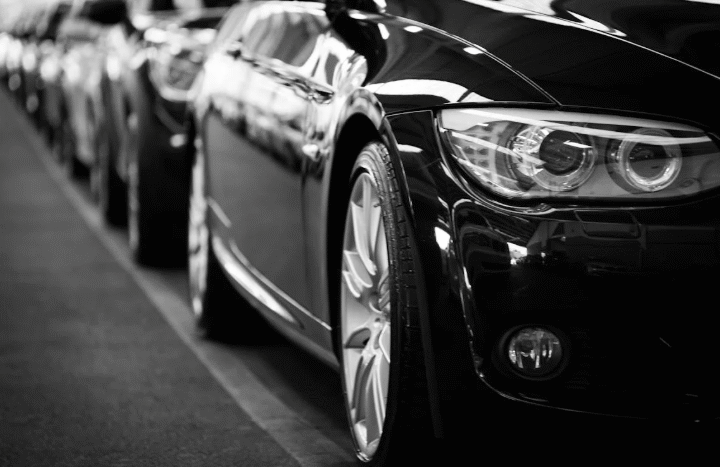
 Your daily reminder that you’re on the internet, where hyperbole is rewarded, and the truth is often tamer than the headline: No, Switzerland is not banning electric cars.
Your daily reminder that you’re on the internet, where hyperbole is rewarded, and the truth is often tamer than the headline: No, Switzerland is not banning electric cars.
The Headlines
A growing tranche of headlines claims Switzerland is contemplating some sort of ban on electric cars.
MoneyWise writes, “The ‘Best Country in the World’ is Planning to Ban Electric Cars Amid the Energy Crisis.”
Fox Business writes, “Switzerland Could Ban Electric Vehicle Use During Energy Crisis.”
The Economic Times discusses, “Why Switzerland Wants to Ban Electric Vehicles.”
The idea is spreading rapidly through English-language news sources. But there may be less to it than the headlines imply.
The Reality
The headlines stem from exaggerations about a draft plan for a possible energy crisis.
Germany’s Der Spiegel reports that a Swiss government agency charged with preparing for a possible energy shortage this winter has prepared a set of recommendations on how the country can conserve power.
One of the steps includes temporary-but-generous limits on driving electric cars. None of the steps contemplate a ban.
The government has not adopted the recommendations. Even if it does, limits on electric car use may never go into effect.
Most of Switzerland’s electricity comes from hydroelectric power plants. Because the Alps cover almost two-thirds of the country, mountain lakes and rivers provide easy opportunities to generate renewable energy.
Related: Study — More than Half of Car Sales Could Be Electric by 2030
But, Der Spiegel notes, the country imports a small percentage of its electricity from neighbors Germany and France.
Those countries are more dependent on imported natural gas. Russia’s ongoing war with Ukraine has left the gas supply unstable, and many European governments are preparing for possible energy restrictions this winter. The Swiss government asked for recommendations on conserving power if Germany and France are forced into blackouts.
Step 3 of a Hypothetical 4-Step Plan
A government agency prepared a report with a laddered series of four steps. It included everything from restricting the use of leaf blowers to turning off the heaters in ski lifts (this is Switzerland, after all).
As reported in Der Spiegel, a rough translation of the plan’s third step recommends that the private use of electric cars should only be permitted for what is considered essential travel. The report goes on to explain such travels include driving for work, shopping, doctor visits, attending religious events, and attending court appointments.
That, we might note, includes almost every imaginable use of a car.
The proposal is, at this point, just a proposal. It would only go into effect in the event of power restrictions in neighboring countries and would be temporary. It would not restrict the sale of electric cars, and the driving limits would kick in only in the third step of a four-step plan.
Switzerland’s Cars Still Going Electric
In all likelihood, the move will not slow down the Swiss people as they move toward electric cars.
Switzerland is not a member of the European Union (EU). But the EU drives its car market.
Switzerland is surrounded by EU members, and EU members make up most of its trade partners. The EU has banned the sale of new internal combustion engine (ICE) cars after 2035. So have four U.S. states.
The Swiss buy the same cars the rest of Europe buys, and those cars are required to go electric. Switzerland does not have its own auto industry. There are automotive factories in Switzerland, but all are owned and operated by companies headquartered in the EU.
Related: With New Law, Automakers Moving Electric Car Production to U.S.
It’s highly doubtful that any of those companies would decide to keep manufacturing internal-combustion-powered cars just for Switzerland, one of Europe’s smaller markets. So the Swiss, just like the rest of us, will have more electric cars and fewer ICE-powered cars to choose from every year until new ICE cars have disappeared from the market.
But the Rumor Illustrates a Problem
The move would, however, illustrate an infrastructure problem nearly every country is dealing with.
Most countries have electric power grids that produce enough energy to power their homes and businesses, but not all of their cars. Their power grids were built on the assumption that cars would get their energy elsewhere. They will need to modernize and expand power production and transmission to accommodate the switch to electric cars.
That’s a long-term problem faced by every industrialized country and one we’ll see governments and industries working to solve over the next two decades. But it won’t see Switzerland ban electric cars.
It will, however, see a lot more inaccurate headlines.


 Best New Car Ratings for Safety and Reliability
Best New Car Ratings for Safety and Reliability  Exploring the Top Picks: Unveiling the Best Car Models
Exploring the Top Picks: Unveiling the Best Car Models  Unveiling Excellence: The World of In-Depth Car Reviews
Unveiling Excellence: The World of In-Depth Car Reviews  Inside the Dynamic Car Industry
Inside the Dynamic Car Industry  Unveiling Current Auto Trends
Unveiling Current Auto Trends  Exploring the Latest Motor Trend Updates
Exploring the Latest Motor Trend Updates  Smart budgeting strategies for tradespeople
Smart budgeting strategies for tradespeople  Exploring New Car Ratings: A Comprehensive Insight into Automotive Excellence
Exploring New Car Ratings: A Comprehensive Insight into Automotive Excellence  Vintage Ring Settings Loved by London Couples
Vintage Ring Settings Loved by London Couples